Nationalism is an idea and movement that holds that the nation should be congruent with the state. As a movement, it presupposes the existence of nations and tends to promote the interests of a particular nation, especially with the aim of gaining and maintaining its sovereignty (self-governance) over its perceived homeland to create a nation-state. It holds that each nation should govern itself, free from outside interference (self-determination), that a nation is a natural and ideal basis for a polity, and that the nation is the only rightful source of political power. It further aims to build and maintain a single national identity, based on a combination of shared social characteristics such as culture, ethnicity, geographic location, language, politics, religion, traditions and belief in a shared singular history, and to promote national unity or solidarity. Nationalism, therefore, seeks to preserve and foster a nation's traditional culture. There are various definitions of a "nation", which leads to different types of nationalism. The two main divergent forms identified by scholars are ethnic nationalism and civic nationalism.
A nation is a large type of social organization where a collective identity has emerged from a combination of shared features across a given population, such as language, history, ethnicity, culture, territory or society. Some nations are constructed around ethnicity while others are bound by political constitutions.
Religious nationalism can be understood in a number of ways, such as nationalism as a religion itself, a position articulated by Carlton Hayes in his text Nationalism: A Religion, or as the relationship of nationalism to a particular religious belief, dogma, ideology, or affiliation. This relationship can be broken down into two aspects: the politicisation of religion and the influence of religion on politics.
Monoculturalism is the policy or process of supporting, advocating, or allowing the expression of the culture of a single social or ethnic group. It generally stems from beliefs within the dominant group that their cultural practices are superior to those of minority groups and is often related to the concept of ethnocentrism, which involves judging another culture based on the values and standards of one's own culture, though this is usually untrue if cultural nationalism is dominant, as opposed to ethno-nationalism. It may also involve the process of assimilation whereby other ethnic groups are expected to adopt the culture and practices of the dominant ethnic group. Monoculturalism, in the context of cultural diversity, is the opposite of multiculturalism.

Benedict Richard O'Gorman Anderson was an Anglo-Irish political scientist and historian who lived and taught in the United States. Anderson is best known for his 1983 book Imagined Communities, which explored the origins of nationalism. A polyglot with an interest in Southeast Asia, he was the Aaron L. Binenkorb Professor of International Studies, Government & Asian Studies at Cornell University. His work on the "Cornell Paper", which disputed the official story of Indonesia's 30 September Movement and the subsequent anti-Communist purges of 1965–1966, led to his expulsion from that country. Benedict Anderson was the elder brother of the historian Perry Anderson.
Economic nationalism is an ideology that prioritizes state intervention in the economy, including policies like domestic control and the use of tariffs and restrictions on labor, goods, and capital movement. The core belief of economic nationalism is that the economy should serve nationalist goals. As a prominent modern ideology, economic nationalism stands in contrast to economic liberalism and economic socialism.
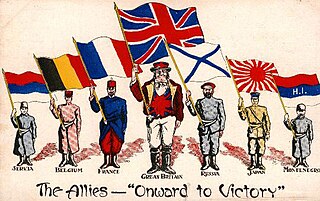
National identity is a person's identity or sense of belonging to one or more states or one or more nations. It is the sense of "a nation as a cohesive whole, as represented by distinctive traditions, culture, and language". National identity may refer to the subjective feeling one shares with a group of people about a nation, regardless of one's legal citizenship status. National identity is viewed in psychological terms as "an awareness of difference", a "feeling and recognition of 'we' and 'they'". National identity also includes the general population and diaspora of multi-ethnic states and societies that have a shared sense of common identity identical to that of a nation while being made up of several component ethnic groups. Hyphenated ethnicities are an example of the confluence of multiple ethnic and national identities within a single person or entity.
A stateless nation is an ethnic group or nation that does not possess its own sovereign state and is not the majority population in any nation state. The term "stateless" implies that the group has the right to self-determination, to establish an independent nation with its own government. Members of stateless nations may be citizens of the country in which they live, or they may be denied citizenship by that country. Stateless nations are usually not represented in international sports or in international organisations such as the United Nations. Nations without a state are classified as fourth-world nations. Some stateless nations have a history of statehood, while some were always stateless.
Historiography is the study of how history is written. One pervasive influence upon the writing of history has been nationalism, a set of beliefs about political legitimacy and cultural identity. Nationalism has provided a significant framework for historical writing in Europe and in those former colonies influenced by Europe since the nineteenth century. Typically official school textbooks are based on the nationalist model and focus on the emergence, trials and successes of the forces of nationalism.
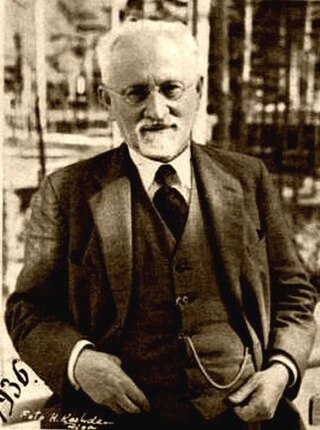
Jewish Autonomism, not connected to the contemporary political movement autonomism, was a non-Zionist political movement and ideology that emerged in the Russian and Austro-Hungarian empires, before spreading throughout all of Eastern Europe in the late 19th and early 20th century. In the late 19th century, Jewish Autonomism was seen "together with Zionism [as] the most important political expression of the Jewish people in the modern era." One of its first and major proponents was the historian and activist Simon Dubnow. Jewish Autonomism is often referred to as "Dubnovism" or "folkism".

African nationalism is an umbrella term which refers to a group of political ideologies in sub-Saharan Africa, which are based on the idea of national self-determination and the creation of nation states. The ideology emerged under European colonial rule during the 19th and 20th centuries and was loosely inspired by nationalist ideas from Europe. Originally, African nationalism was based on demands for self-determination and played an important role in forcing the process of decolonisation of Africa. However, the term refers to a broad range of different ideological and political movements and should not be confused with Pan-Africanism which may seek the federation of many or all nation states in Africa.
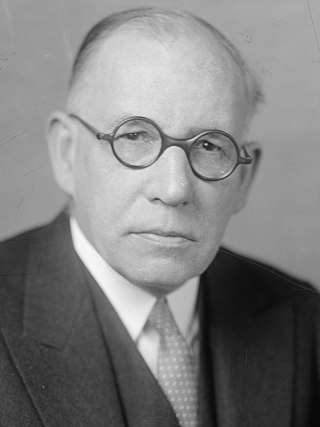
Carlton Joseph Huntley Hayes was an American historian, educator, diplomat, devout Catholic and academic. A student of European history, he was a leading and pioneering specialist on the study of nationalism. He was elected as president of the American Historical Association over the opposition of liberals and the more explicit Anti-Catholic bias that defined the academic community of his era. He served as United States Ambassador to Spain in World War II. Although he came under attack from the CIO and others on the left that rejected any dealings with Francoist Spain, Hayes succeeded in his mission to keep Spain neutral during the war.
Civic nationalism, also known as democratic nationalism and liberal nationalism, is a form of nationalism that adheres to traditional liberal values of freedom, tolerance, equality, individual rights and is not based on ethnocentrism. Civic nationalists often defend the value of national identity by saying that individuals need it as a partial shared aspect of their identity in order to lead meaningful, autonomous lives and that democratic polities need a national identity to function properly.
Nations and Nationalism is a peer-reviewed academic journal that covers research on nationalism and related issues. It is published quarterly on behalf of the Association for the Study of Ethnicity and Nationalism by Wiley-Blackwell. Anthony D. Smith was the founding editor and the editor until his death in 2016.
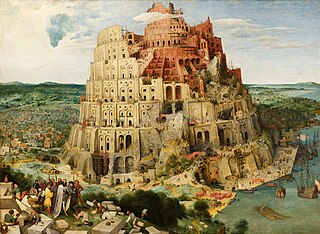
Nationalism studies is an interdisciplinary academic field devoted to the study of nationalism and related issues. While nationalism has been the subject of scholarly discussion since at least the late eighteenth century, it is only since the early 1990s that it has received enough attention for a distinct field to emerge.

Tomasz Kamusella is a Polish scholar pursuing interdisciplinary research in language politics, nationalism, and ethnicity.
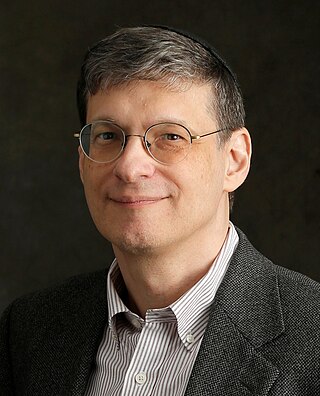
Yoram Reuben Hazony is an Israeli-American philosopher, Bible scholar, and political theorist. He is president of the Herzl Institute in Jerusalem and serves as the chairman of the Edmund Burke Foundation. He has argued for national conservatism in his 2018 book, The Virtue of Nationalism and 2020's Conservatism: A Rediscovery.

Carol Miller Swain is an American political scientist and legal scholar who is a retired professor of political science and law at Vanderbilt University. She is a frequent television analyst and has authored and edited several books. Her interests include race relations, immigration, representation, evangelical politics, and the United States Constitution.
Ethnic nationalism, also known as ethnonationalism, is a form of nationalism wherein the nation and nationality are defined in terms of ethnicity, with emphasis on an ethnocentric approach to various political issues related to national affirmation of a particular ethnic group.
Sabrina Petra Ramet is an American academic, educator, editor and journalist. She specializes in Eastern European history and politics and is a Professor of Political Science at the Norwegian University of Science and Technology (NTNU) in Trondheim.









